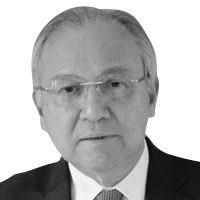Drugs: A worldwide threat

In 2016, Americans spent $150 billion on illegal drugs that include cocaine, marijuana, heroin and methamphetamine, with the death toll due to drug overdose reaching 64,000 for that year alone. In 2017, the death toll involving opioids reached 72,000, prompting President Trump to declare it as a nationwide public health emergency.
According to the Centers for Disease Control and Prevention, over 700,000 people have died due to drug overdose from 1999 to 2017. And of that number, almost 400,000 died due to overdose involving any opioid (both prescription and illicit). On the average, 130 Americans die every day from an opioid overdose, the CDC report said.
A report from the US Society of Actuaries estimates the total economic cost of the opioid crisis at $631 billion from 2015 to 2018, and about $214 billion this year alone. Yet these numbers do not entirely depict the kind of impact that opioid or drug addiction has on the individual or families and society as a whole considering the link between criminality and drug abuse/addiction.
Crimes may range from petty thievery to sustain one’s drug addiction, to assault, rape, murder and other violent crimes. Research by a criminology and criminal justice professor at the University of Missouri in St. Louis indicates the correlation between the opioid crisis and a rise in the rate of murder in 2015, 2016 and the first half of 2017. Specifically, the proliferation of illicit opioids may have been a factor in the increased rate of murders on the said years because the illegal/underground drugs market came with violence, with homicides associated with underground drug transactions such as disagreement over the price of drugs and of course, “turf” wars between rival distributors.
Obviously, drug syndicates are raking in billions with the underground market, mixing synthetic opioids and powerful pain relievers with cocaine, opium, heroin and chemical substances to create more powerful drugs known as “modern-day speedballs.” Illicit opioids smuggled to the US are also mixed with flour, baking soda and “additives” to create less potent versions that are then sold by street dealers to opioid addicts that also include teenagers, making it a very lucrative – but deadly – business with people walking like zombies and just falling dead on the streets because of drug overdose.
The magnitude of the opioid crisis has prompted the filing of over 2,600 lawsuits from cities, counties, tribal groups and private individuals all across the US against pharmaceutical companies that are being accused of exacerbating the opioid problem by downplaying the risks of addiction, and putting profit over people’s lives by aggressively marketing opioid medication for pain relief and similar uses. Drug distributors are also being sued for their alleged failure to detect or report suspicious orders, resulting in an “epidemic of death and addiction” that has taken its toll on the people.
The plaintiffs want these pharma companies and distributors to pay for the massive amounts of money spent on healthcare and crime-related issues from the time these drug companies started manufacturing the highly addictive opioids and powerful pain relievers. The lawsuits are being consolidated with the landmark first trial scheduled in Ohio earlier, but was averted by a last-minute settlement by several companies with two counties in Ohio for $260 million. However, there are still 2,600 cases that are pending.
The US is not the only country that is faced with this daunting problem. The latest drug report by the UN Office on Drugs and Crime (UNODC) says there are some 53 million opioid users – up 56 percent from previous estimates – with an increase in prevalence in Africa, Europe, North America and Asia. Global manufacture of illicit cocaine also reached an all-time high of 1,976 tons in 2017.
Organized crime syndicates are now expanding their Southeast Asian operations, UNODC also reported. Synthetic drugs are becoming the most profitable, with the methamphetamine market estimated at over $61 billion annually while heroin has gone down to about $10 billion annually.
Today, the hunt is on for the man known as Asia’s “El Chapo” identified as Tse Chi Lop (nicknamed Sam Gor) who is suspected of leading a massive multinational drug trafficking syndicate in alliance with triad groups. Known simply as “The Company,” Sam Gor’s operation is believed to be responsible for the distribution of methamphetamine, heroin and ketamine with annual revenues now reaching as high as $17 billion. The drugs, usually hidden in tea sachets, are distributed to many parts of Asia and account for up to 70 percent share of the methamphetamine market in the region.
Sadly, there are still skeptics about the drug menace. Many countries including the Philippines are under real threat from this evil scourge. While it has been cut down to a certain extent following the government’s launch of the war against drugs, the problem continues to be prevalent. While the United States has a lot of resources to fight illegal drug syndicates, our resources are so limited, exacerbated by the fact that some local government officials and members of the Philippine National Police are clearly involved in this business.
The revelations about drug recycling and the “ninja cops” controversy clearly show the connection between rogue cops and organized crimes which could explain the so-called issues surrounding extra judicial killings. This has certainly affected the morale of the PNP and tarnished its image and credibility. The filing of criminal complaints against the “ninja cops” is also a step toward solving past killings involved with illegal drugs.
One thing is clear: The drug situation is worse than we could have ever imagined before.
* * *
Email: [email protected]
- Latest
- Trending





















